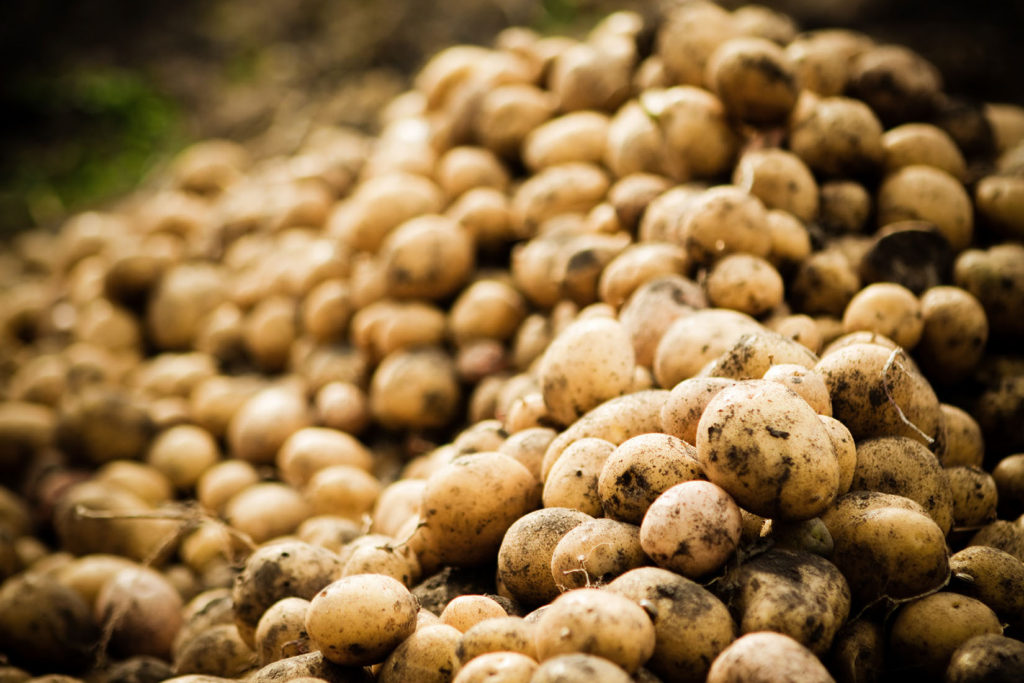
EU potato growers advised to cut planting by 15% in 2021
In a recent announcement, the North-Western European Potato Growers (NEPG) has advised its consumption-potato grower members to reduce 2021 plantings by 15%. NEPG is the market exchange platform for potato growers in Germany, France, the Netherlands, Belgium and Great Britain. Potato market expert Cedric Porter believes this might be too much.
Potato harvest in Western Europe was later than usual this year. Western Belgium and parts of Great Britain were challenged by wet harvest conditions. If all potatoes were harvested, NEPG estimates total production for 2020 to be 27.9 million metric tonnes (approx. 61.5 billion pounds), an increase of 4.5% (1 million tonnes) over last season.
Worldwide demand for processed potato products has been greatly impacted by COVID-19, and demand from processors is about 85% of what it was last season. In a recent press release, NEPG said European potato processors already have large stocks of ready products in their cold stores and, as a result, will lower demand in the coming months.
Nobody knows how much stock processors have in storage, said Victor Phaff, NEPG Secretary.
“Enough for 6-9 months, I estimate,” he said. “But there is a two-year shelf life date on the product, so these stocks have to be sold or dumped anyhow, as the clients of the factories also need 6-9 months shelf life.
“It is for sure that the stocks are higher and actual sales low due to closed food service.”
Much of Europe was in a second lockdown beginning in October. In some countries, partial lockdown is expected to last until Feb. 1, at the earliest. During partial lockdown, the food services sector — restaurants, bars, cafeterias and cafes — remain closed.
As a result, Pfaff said he expects fewer tonnes per hectare contracted by processors. The risk is to the farmer, he said, which is why NEPG is advising fewer planted hectares for 2021.
Brexit has further complicated the issue. “Great Britain is one of the biggest markets for pre-fried potato products from Belgium, the Netherlands and Germany,” he said. “With a hard Brexit, there will be an import duty on these exports, which might decrease volume.”
The CIPC ban further complicates an already challenging situation, as new sprout control products may be difficult to access and their use is more expensive and laborious. As a result, the NEPG expects fewer growers will opt for extreme long storage. They have advised growers to recalculate costs before signing future contracts.
Global potato market expert and publisher of World Potato Markets Cedric Porter said a 15% reduction may be unjustified, especially if foodservice restrictions are lifted earlier than expected.
“There is not a total shutdown, as there was in late March and throughout April, but people may be reluctant to dine out because of fears over the virus or lack of disposable money,” Porter reported in late October.
The introduction of vaccines could further stabilize the situation and allow for a return to some sense of normality, he added.
“By August or September 2021, when the potatoes that are planted in the European spring are harvested, the situation could be different to the picture now,” Porter added. “By then, consumers may be able to eat in restaurants and cafes with a degree of normality. If they cannot, a significant number of those outlets may have closed due to lack of demand.”
While Porter points out that the first lockdown brought the virus under control in mere months, lockdown or partial lockdown has already been extended until February in many European countries. It is uncertain how long the restrictions will remain in effect.
Porter commended the NEPG for advising growers to secure contracts for 2021. “This makes a lot of sense, as it will reduce the financial risk for both parties — and especially growers,” he said.
If life returns to normal, a 15% reduction in planted potatoes “will probably be too much,” said Porter, as supply will be unable to satisfy demand.
“However, a continuation of the crisis and the subsequent impact on foodservice outlets could mean that such a large reduction in output is justified,” he concluded.
Regardless of what a post-Brexit deal will look like, Porter advised growers to prepare for commercial- and seed-trade changes. As of Jan. 1, 2021, all commercial potatoes exported to the UK will require additional documentation, including a phytosanitary certificate, a pre-notification of import and identity documentation for those carrying the goods. Imports will also be subject to a physical inspection, which will come with a fee.
Porter also expected a ban on seed imports from the EU into the UK after Jan. 1. The UK potato industry is currently lobbying the government to allow EU seed imports.
Until the UK is granted third-country status, which will only happen once the transition is complete, the UK cannot export to any of the remaining 27 countries within the European Union.
The UK also imports a significant amount of ware potatoes, most of which comes from the EU. If a trade deal between the UK and the EU is not finalized, ware potato imports from the EU will be subject to a 10% tariff.
UK ware exports were down 29.4% last year. Non-EU sales made up less than 3% of the overall total, meaning the UK relies heavily on the EU as an export market.
— This is the latest from Spudman’s Global Perspectives series, which examines potato-related developments from around the globe.







